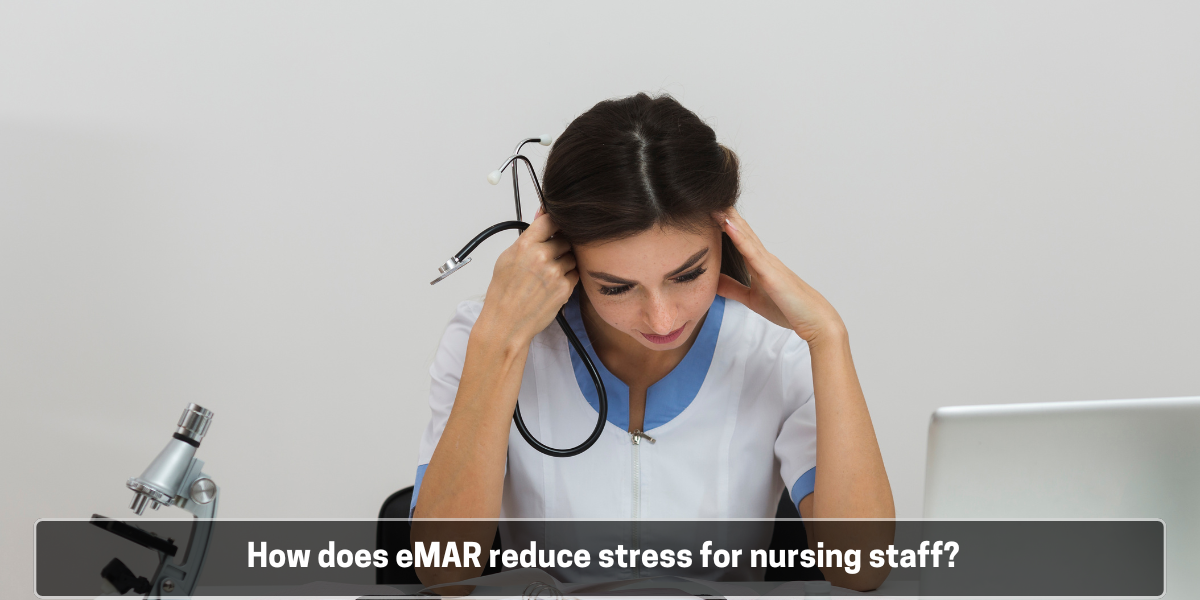Nurses and medical staff in the UK face constant demands in their roles. They juggle patient care, shift handovers, and updating records, all while under pressure. It can feel exhausting and stressful. That’s where the electronic Medication Administration Record (eMAR) system steps in. As a digital upgrade to traditional paper-based MAR charts, eMAR helps simplify tasks, reduce errors, and ease the mental burden. Let’s take a look at how eMAR helps relieve stress and make life easier for nurses and care home staff across the UK.
Medication management made simpler
Instead of flicking through endless pages or squinting to read unclear handwriting, staff use eMAR to log medications straight into the system. The moment a dose is given, it gets recorded instantly. No more second-guessing or going back through notes. This smooth, real-time process helps nurses stay organised and cuts out repetitive admin tasks.
Quick access to vital information
In healthcare, time matters. When a patient needs urgent care, staff can’t waste time searching for details. eMAR puts all key information—like current medications, past doses, allergies, and other records—right at their fingertips. This helps staff make safe, fast decisions without waiting around or calling someone to check records. Knowing they have accurate, complete data gives staff more confidence to do their job well.
Cutting down on medication errors
One of the biggest fears for any nurse is making a medication mistake. Whether it’s giving the wrong dose or missing a vital allergy, these errors can be serious. eMAR helps prevent them by alerting staff to any issues. It checks for things like wrong timings, interactions, or allergies. If something looks off, the system flags it before the medicine is given. This built-in safety net helps protect patients and gives staff reassurance they’re doing things right.
Saving time with faster documentation
Nursing shifts are packed from start to finish. eMAR speeds up documentation by allowing quick digital entries. Instead of scribbling notes or trying to decipher someone else’s handwriting, nurses just update the system as they go. This saves valuable time, which they can then use to care for patients. Less time writing means more time listening, helping, and treating.
Helping staff make better decisions
Sometimes decisions need to be made quickly, and second-guessing can cause delays. eMAR offers extra support by providing alerts and prompts. Whether it’s reminding about a missed dose or highlighting a possible drug clash, the system helps staff make the best call. It takes away the guesswork and helps them act with confidence.
Keeping everyone on the same page
In busy settings, staff often work in teams made up of nurses, doctors, carers, and pharmacists. Communication gaps can lead to problems. With eMAR, everyone sees the same information. It’s updated in real time, so there’s no need to wait for someone to pass on notes or make a phone call. This clear, shared view helps teams work together smoothly and avoid mix-ups.
Lifting the mental load
Managing medications is no small task. Having a system that works reliably makes a big difference to stress levels. eMAR takes away much of the mental strain that comes from trying to remember details or double-check records. Staff feel more in control and can focus on what really matters—caring for their patients.
Building staff confidence
When nurses feel supported, they work better. eMAR gives them the structure, clarity, and feedback they need to do their job well. It’s not just about saving time or cutting down errors. It’s about creating a working environment where staff feel confident and capable. That boost in confidence can lead to better patient care, smoother shifts, and happier teams.
By choosing eMAR medication, nurses and care teams embrace a more organised, less stressful way of working. It’s not just a new bit of tech—it’s a tool that lifts the pressure, supports safer care, and allows staff to spend more time with their patients. It’s a smart step towards a calmer, more efficient healthcare setting.







